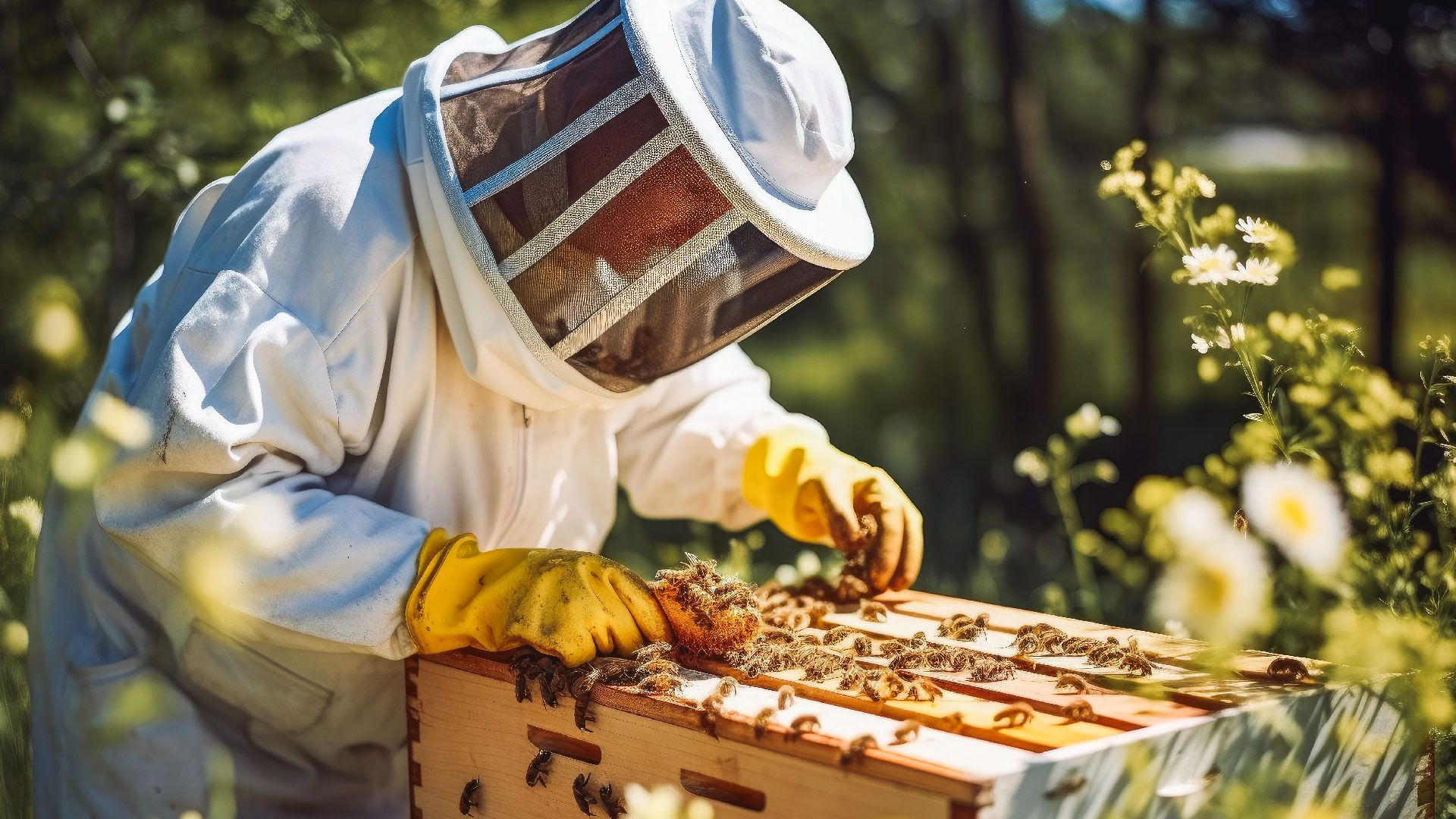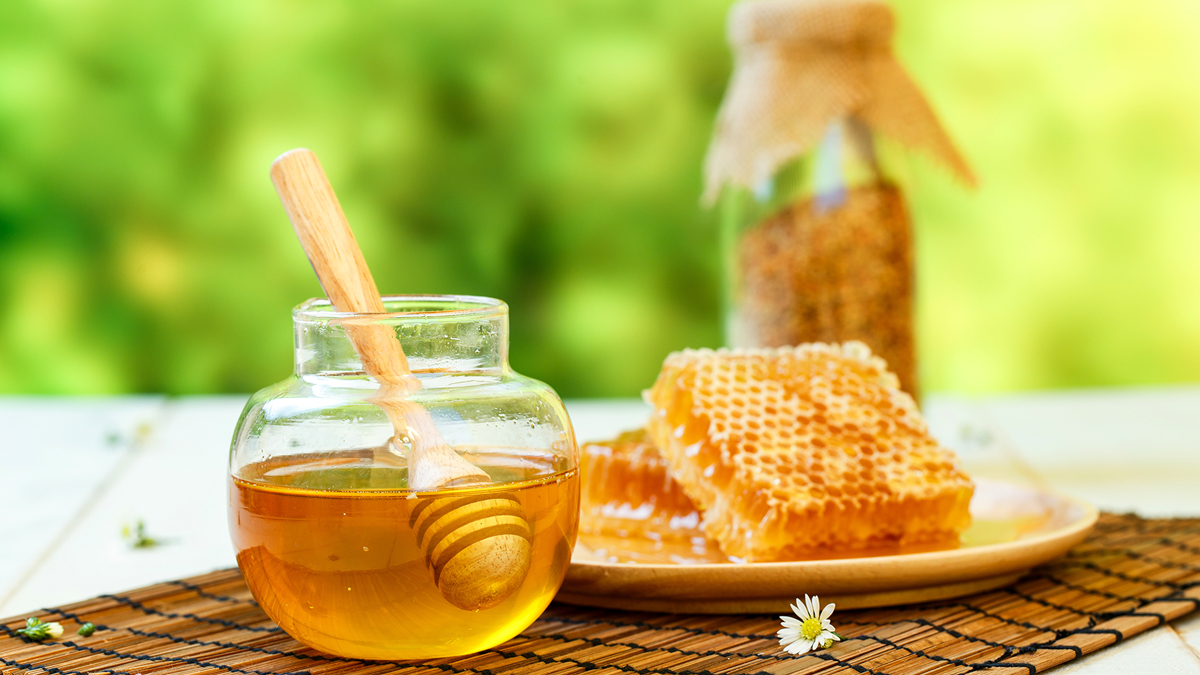Honey and apiculture products
Analysis and consulting for the quality and safety of your products
Honey is a precious, completely natural food that boasts a range of beneficial properties. It is the result of a production process that is as delicate as it is essential for biodiversity. Beekeeping is not only a continuously growing sector, but also an important ecological ally that supports agriculture and maintains environmental balance through pollination. However, with the growing consumer awareness regarding product authenticity and quality, it is essential to implement increasingly stringent controls.
At Lifeanalytics, we stand alongside honey and beekeeping product producers, offering a comprehensive system of specialized analyses and consulting services. We carry out chemical, microbiological, sensory, and nutritional investigations using cutting-edge equipment and accredited methods to support companies in ensuring safe honey that complies with the latest national and European regulations on apicultural food products.
Regulations and Controls: the Latest Updates to Comply With
Over the years, the regulatory framework governing the production and sale of honey has become increasingly stringent, with the aim of preventing food fraud and adulteration. Directive 2001/110/EC, which was transposed into Italian law through Legislative Decree 179/2004, defines what is meant by honey and prohibits the addition of ingredients or additives. This is complemented by the recent EU Directive 2024/1438, known as the "Breakfast Directive", which introduces new traceability obligations regarding origin, ensuring greater transparency of information and stricter controls.
In addition to these directives, our experts support companies in aligning with the main international regulatory references:
- Directive 2001/110/EC: defines the product “honey”;
- Codex Alimentarius: sets global physicochemical standards for honey;
- Legislative Decree 179/2004: defines the product “honey” and the requirements for its production and marketing.
Thanks to our participation in UNI technical committees, we stay constantly updated on regulatory developments and can offer effective, timely consulting support aligned with the most current standards.
Find the solution that best suits you
Honey Contaminants: What to Watch Out For
On its journey from flower to jar, honey can be exposed to various forms of contamination.
Some of the most critical contaminants include:
- Chemical residues: pesticides and antibiotics from agricultural treatments or illegal treatments for bee diseases;
- Environmental contaminants: heavy metals (such as lead, cadmium, mercury), dioxins and PCBs, microplastics, agrochemicals;
- Biological contaminants: pathogenic bacteria, allergens, molds or spoilage yeasts. In our accredited laboratories, we perform specific analyses to detect these substances and help you ensure the safety and quality of your product. All analyses are carried out in accordance with the limits established by European regulations on food contaminants.

Our services include:
- Physicochemical analysis;
- Analysis of pesticide/plant protection product and antibiotic/inhibitor residues;
- Analysis of mycotoxins, heavy metals, dioxins, PCBs, and PAHs;
- Testing for emerging contaminants (MOSH-MOAH, PFAS, Furfuryl Alcohol);
- Microplastics analysis;
- Allergen testing in compliance with Regulation 1169 and for export purposes.
Find the solution that best suits you
Authenticity Analysis and Fraud Prevention
Protecting authenticity is one of the most crucial aspects of ensuring honey quality and maintaining consumer trust. We use advanced techniques, such as isotopic mass spectrometry (EA-IRMS and LC-IRMS), to detect food fraud related to the addition of external sugars like glucose, fructose, or cane syrup.
With our specialized Food Fraud & Authenticity services, we can detect potential adulterations and verify the geographical and botanical origin of honey, thus safeguarding the uniqueness and reputation of your product.
Microbiological Analysis of Honey and Beekeeping Products: Safety and Quality Under Control
We carry out microbiological analyses to ensure that honey and beekeeping products are free from pathogens or unwanted microorganisms. Using cutting-edge technologies such as MALDI-TOF, we can quickly identify bacteria, yeasts, and molds, thereby ensuring:
- compliance with the required microbiological parameters, in accordance with hygiene and food safety guidelines applicable to beekeeping and food products;
- protection of organoleptic properties;
- prevention of product spoilage.
We also support companies in managing microbiological self-monitoring, providing customized solutions tailored to their specific production needs.
Nutritional Analysis and Additive Control in Honey: Transparency and Nutritional Value
In addition to evaluating sugar composition, we examine the complete nutritional profile of honey through detailed analyses and nutritional labeling. We identify the presence of vitamins, additives, and other micronutrients to help you:
- create a nutritional label in compliance with Regulation (EU) 1169/2011;
- clearly communicate the nutritional benefits of the product;
- enhance transparency in your market positioning.
Find the solution that best suits you
Shelf Life and Stability Testing on Honey and Beekeeping Products
Studying shelf life is essential to ensure that honey retains its properties over time. We carry out:
- Primary and secondary shelf life tests;
- Physicochemical and microbiological stability studies;
- Challenge tests to assess microbial resistance under extreme conditions;
- Technical drafting of shelf life plans.
All results are supported by technical-scientific documentation suitable for submission to regulatory authorities and for commercial purposes.
Sensory Analysis to Enhance Your Honey
 The sensory experience is key to distinguishing high-quality honey. We offer accredited organoleptic tests and panel tests conducted by expert tasters, both in our sensory analysis room and through home testing.
The sensory experience is key to distinguishing high-quality honey. We offer accredited organoleptic tests and panel tests conducted by expert tasters, both in our sensory analysis room and through home testing.
Our services include:
- Professional panel tests to define the sensory profile of honey;
- Large-scale consumer tests to analyze consumer preferences;
- Market research for product positioning.
These insights are valuable for improving formulations, standing out from the competition, and optimizing sensory claims on labeling.
Learn more about Sensory Analysis
Specialized Consulting Services for Beekeeping
Our support goes beyond analysis. We offer tailored consulting services to ensure regulatory compliance, process quality, and the safety of honey and beekeeping products.
Our experts can assist your company with:
- Consulting on labeling and nutritional claims (Labeling & Regulatory);
- Preparation of customized HACCP manuals;
- Internal and second-party audits;
- Development of EU nutritional tables based on RDP results;
- Support for local health authority inspections and sanitary authorization under Reg. 852;
- Quality systems such as BRC, IFS, and FSSC22000;
- Implementation of voluntary hygiene and safety systems.
Export and Food Safety Plan: if you wish to export your honey, we assist you in preparing the Food Safety Plan for the U.S. market and managing all the requirements for international markets, including technical documentation, compliance with local regulations, and market entry strategy planning.
Find the solution that best suits you
Why Choose Lifeanalytics for Honey and Beekeeping Products
Thanks to our ISO/IEC 17025:2018 accredited laboratories and our extensive network of locations across the country, we provide reliable, timely, and tailored services for every production scale — from small artisanal beekeepers to large-scale honey packaging industries.
Want to learn more?
Fill out the form to request your personalized consultancy!
Lifeanalytics Food: Discover All Our Services for the Agri-Food Sector
The Lifeanalytics Food Business Unit offers a complete range of analysis, consulting, and training services to ensure the safety and quality not only of honey, but also of cereals and derivatives, milk and dairy products, fresh produce and canned vegetables, beverages, fruit juices, and much more.
Our chemical, microbiological, nutritional, and sensory analyses — combined with regulatory updates and specialized consulting — help producers comply with legislation, protect consumer health, and strengthen their position in the market.
Would you like to have a customized consultation?
Do not hesitate to contact our consultants.
REQUEST A PERSONALIZED CONSULTANCY
You might be interested in: Cereals and derivatives | Fruit and vegetable preserves | Beverage and Fruit Juice Safety